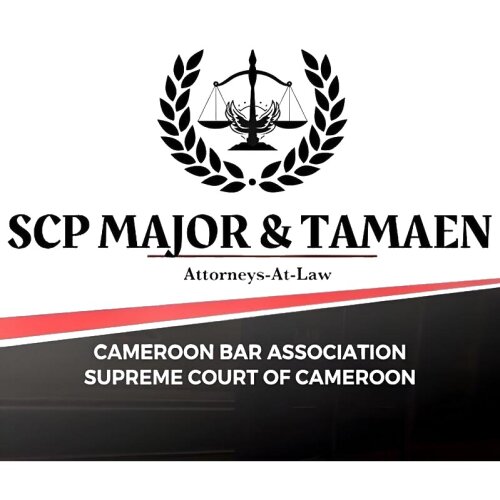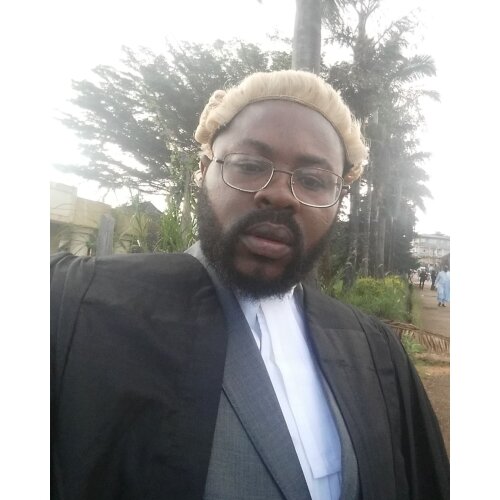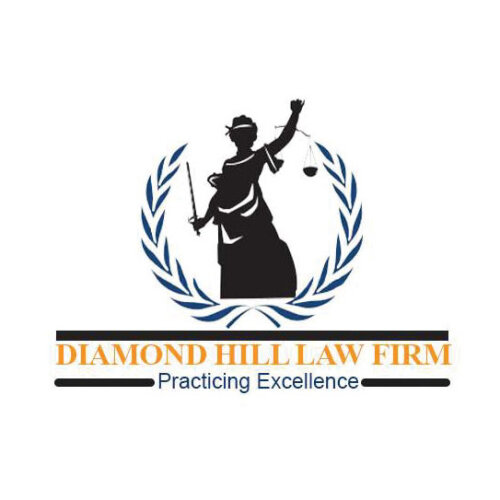Best Oil, Gas & Energy Lawyers in Cameroon
Share your needs with us, get contacted by law firms.
Free. Takes 2 min.
Or refine your search by selecting a city:
List of the best lawyers in Cameroon
Legal guides written by CHI & Partners Law Firm:
- Ship Registration in Cameroon
About Oil, Gas & Energy Law in Cameroon
The Oil, Gas & Energy laws in Cameroon primarily dictate all activities pertaining to the exploration, production, refinement, and commercialization of hydrocarbon resources within the country. These laws provide a framework to regulate activities such as concessions, licensing, royalties, environmental considerations, government participation, and guidelines for foreign investments. Cameroon's oil, gas and energy industry is heavily regulated by the government through various bodies such as the National Hydrocarbons Corporation (SNH) and the Ministry of Mines, Industry, and Technological Development (MINMIDT).
Why You May Need a Lawyer
Legal assistance in the oil, gas, and energy sector in Cameroon is crucial for several reasons. Lawyers well-versed in this field can help in negotiations and the preparation of contracts, ensuring they comply with local laws and regulations. Conflict resolution stemming from disagreements on contract terms, disputes over rights and boundaries, and compensation claims for environmental damages are some areas where legal expertise could be needed. Understanding business laws and tax regulations, securing permits and rights for explorations and drilling, and addressing labor issues could also require lawyers' intervention.
Local Laws Overview
Cameroon's laws governing the oil, gas, and energy sector include the Petroleum Code, the Mining Code, and the Environmental Law. The Petroleum Code is particularly relevant as it regulates exploration, exploitation, transportation, and commercialization of hydrocarbons in Cameroon. The Mining Code outlines the legislation for mining of minerals and other substances other than hydrocarbons. Environmental Law is equally important, as it highlights the obligation of companies to protect the environment, restore damaged natural resources, and provides penalties for causing environmental damage. There are also taxation laws that are specific to the hydrocarbons sector in addition to general business laws.
Frequently Asked Questions
1. Who regulates the oil, gas, and energy sector in Cameroon?
The National Hydrocarbons Corporation (SNH) and the Ministry of Mines, Industry, and Technological Development (MINMIDT) are the main bodies that regulate this sector.
2. What is the role of the Petroleum Code?
The Petroleum Code provides a legislative framework for all activities concerning exploration, production, and commercialization of hydrocarbons in Cameroon.
3. How are environmental concerns addressed within the sector?
The Environmental Law in Cameroon mandates companies to responsibly protect and restore the environment, imposes sanctions for causing environmental damage, and obligates companies to conduct environment impact assessments.
4. Can foreign entities invest in the oil, gas, and energy sector in Cameroon?
Yes, foreign entities can invest in Cameroon's energy sector, but they are required to abide by certain regulations and must also register their businesses locally.
5. Do I need a lawyer to negotiate contracts in the oil, gas, and energy industry?
Yes, secluding a lawyer can be beneficial as they can help to ensure that all agreements comply with local laws and regulations and protect your interests.
6. What kind of issues can a lawyer help to resolve in this sector?
A lawyer can help resolve issues such as disputes over rights and boundaries, contract disputes, compensation claims for environmental damages, and labor issues.
7. Are there specific taxation laws for the oil, gas, and energy sector?
Yes, there are specific taxation laws for this sector in addition to the general business tax laws in Cameroon.
8. What are the penalties for non-compliance with environmental laws?
The penalties can range from fines to imprisonment, depending on the severity of the environmental damage.
9. How are rights and licenses for exploration and drilling secured?
Rights and licenses are secured from the National Hydrocarbons Corporation after satisfying all conditions set out in the Petroleum Code.
10. Do companies need legal representation in case of labor disputes?
Yes, companies should have legal representation as labor disputes could carry significant legal implications.
Additional Resources
Additional resources for this sector include the official websites of the Ministry of Mines, Industry, and Technological Development (MINMIDT) and the National Hydrocarbons Corporation (SNH). These websites provide valuable information on regulations, updates to laws, and other industry-related details. The Ministry of Environment and Nature Protection also offers information on environmental regulations and requirements.
Next Steps
If you are in need of legal assistance related to the oil, gas, and energy sector in Cameroon, you should consider contacting a lawyer who specializes in this field. They can provide you pertinent advice as they will be very familiar with local regulations and laws. Additionally, understanding the local cultural context and business etiquette could be beneficial in negotiations and business dealings.
Lawzana helps you find the best lawyers and law firms in Cameroon through a curated and pre-screened list of qualified legal professionals. Our platform offers rankings and detailed profiles of attorneys and law firms, allowing you to compare based on practice areas, including Oil, Gas & Energy, experience, and client feedback.
Each profile includes a description of the firm's areas of practice, client reviews, team members and partners, year of establishment, spoken languages, office locations, contact information, social media presence, and any published articles or resources. Most firms on our platform speak English and are experienced in both local and international legal matters.
Get a quote from top-rated law firms in Cameroon — quickly, securely, and without unnecessary hassle.
Disclaimer:
The information provided on this page is for general informational purposes only and does not constitute legal advice. While we strive to ensure the accuracy and relevance of the content, legal information may change over time, and interpretations of the law can vary. You should always consult with a qualified legal professional for advice specific to your situation.
We disclaim all liability for actions taken or not taken based on the content of this page. If you believe any information is incorrect or outdated, please contact us, and we will review and update it where appropriate.
Browse oil, gas & energy law firms by city in Cameroon
Refine your search by selecting a city.

















